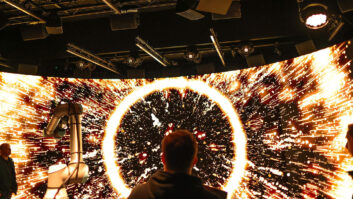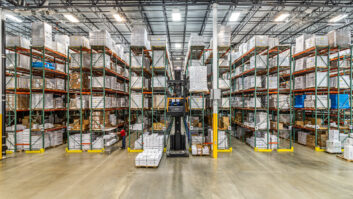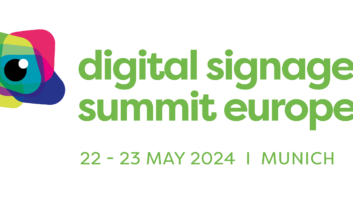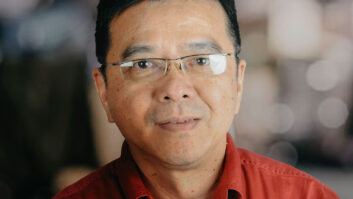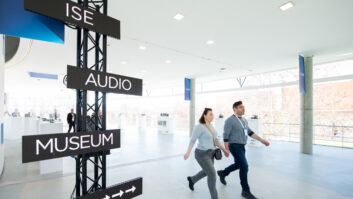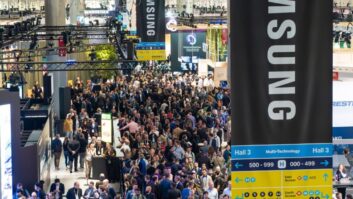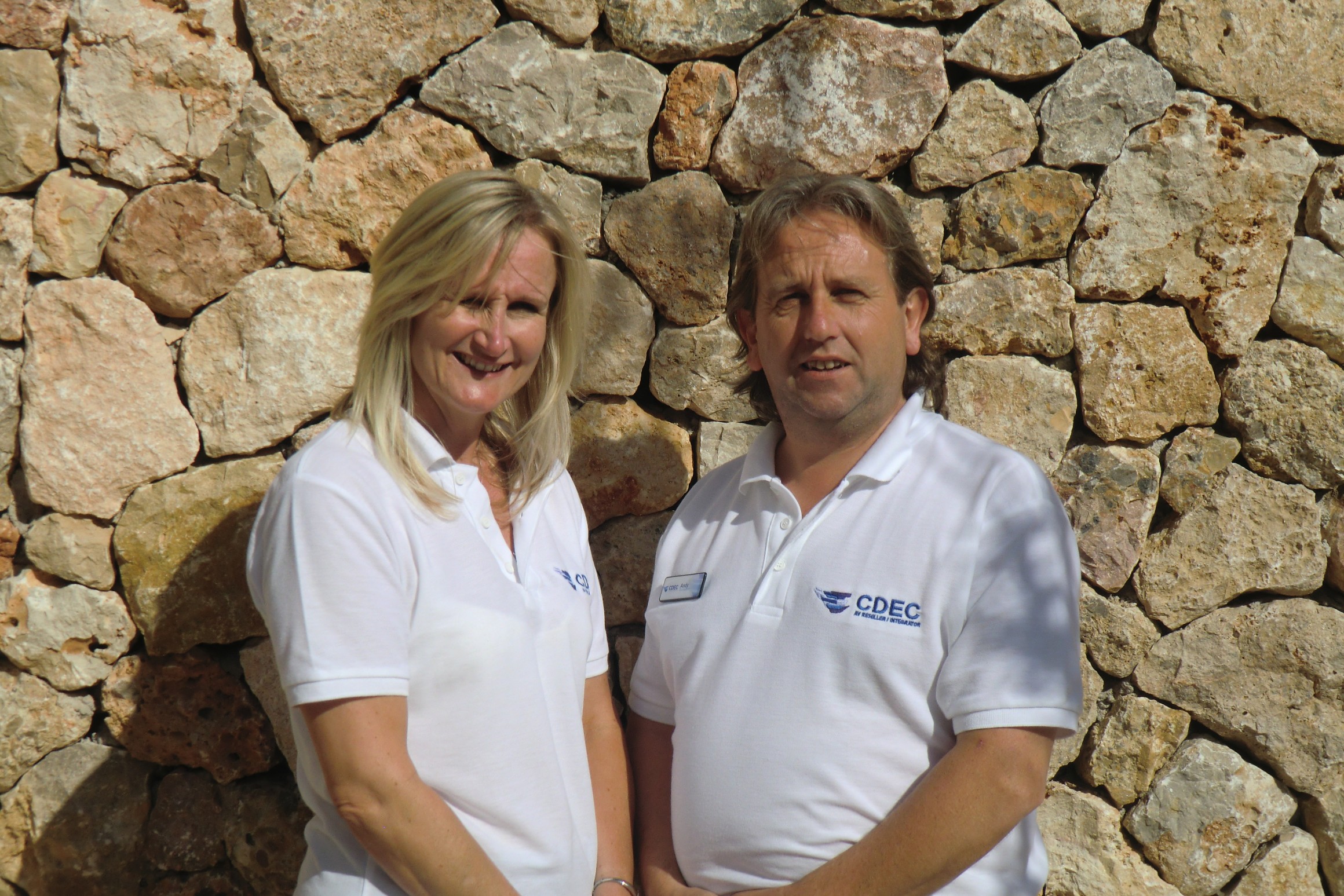
Last night CDEC came away with the Best Project Award in the Education category at the InstallAwards. CDEC also hosted a sales conference last month, where we caught up with Toni Barnett and Andy Duckworth.
We’re here at your sales and suppliers conference in Mallorca. How long have you been doing these events, and why do you do them?
Andy Duckworth: This is our third sales and suppliers conference. We’ve been doing it since 2011, but in between that we’ve been doing sales conferences for our own people – I think we’ve done 12 now. We see teamwork and team bonding, and sales increase massively after sales conferences. The sales and supplier conferences are about making partnerships – what we see afterwards is suppliers can phone our salespeople up and have a rapport immediately.
How would you describe those social and networking aspects?
Toni Barnett: Very tiring! It’s nice to have that relationship with suppliers. Business is about relationships – people buy from people You’re selling to your suppliers as you’re selling to your customers – it’s about them having the confidence that you can deliver what they need.
AD: Even at sociable times, conversation revolves around products. We all want to increase business, and networking in a relaxed atmosphere really helps.
How would you characterise your position in the market, and how does this event help to move the company forward?
TB: CDEC has been going 15 years – we sell to education, although we have one or two corporate customers. The FE and HE sector isn’t new to us, but previously we weren’t on any [supplier] framework agreements. Now we’re on a framework it allows us to drive our company in the direction we want to grow it – it’s in our growth plan and has been for the past five years. We wanted to apply for the framework five years ago, but withdrew as we weren’t ready for it as an organisation. We applied again last summer and the results were announced in January.
Now we’re ready, we need to go into this contract with a different strategy. Rather than trying to tender for everything, you’ve got to pick your battles as the tenders are so complex.
Can you explain how the framework works?
AD: It’s organised by purchasing groups – HEPCW (Higher Education Purchasing Consortium, Wales), LUPC (London University Purchasing Consortium) and SUPC (Southern University Purchasing Consortium) – although it can be used by any university. The framework is split into three categories: supply only (lot 1), supply and install (lot 2) and supply, install and design (lot 3) – I think there’s a grey area between the last two. The universities decide which lot to choose, and send out a tender to the relevant suppliers. We’ve had 68 tenders in a month. So you still have to tender for the work, but if we weren’t on the framework we wouldn’t get the opportunity.
How did you get onto the framework?
AD: We had to tender! Possibly the biggest tender I’ve seen in my life – it took us four months. It was a tender for each lot: there were specific questions, there was a price exercise, but also a quality exercise – do you have CTS qualifications, PRINCE 2 qualifications, ISO 14001, what are your processes for this and that, and so on. The good news for us is that we came top, out of all these established AV companies in that sector.
When we were talking to Extron just now you mentioned getting some of your people CTS accredited and Extron trained. Is that an ongoing process as the company develops?
AD: Absolutely – you’ve got to do training.
TB: It’s a lot of investment – when you release people to go on those training courses, even if it’s only for a couple of days, you’ve still got tenders coming in and customers to support. It’s about finding the right time to do all of this. We’ve just got a contract and thought ‘this is going to be brilliant’ and suddenly voom! It’s all coming at us and we’re having to duck. It’s great – and one thing about CDEC is we rise to a challenge.
AD: We’re also honest about what we do. If we don’t think we’re working to our full potential, we’ll say so, and that we plan to get there. Part of this conference has been looking for help and expertise, and sharing good practices. We’ve got some good manufacturers who want to get behind us.
TB: And we’ve got some really good people working for us as well. We wouldn’t be where we are today without good, passionate salespeople – we don’t have a high turnover of staff. Yesterday I kept hearing people say ‘CDEC family’ – and that’s what we are.
AD: We’re a sales-driven organisation, and we understand that our business has to grow. We’ve got a clear aim: we want to be the biggest university AV supplier in two years, and the biggest education AV supplier in two years – and we’ll get there.
How do you think you’re seen in the market by your customers and your competitors?
TB: I think the perception from our suppliers is that we are driven, and we deliver to them. Our competitors don’t like it because we have that ethos of passion and desire, and they see something a little different about us. It creates issues because people have perceptions of us. We’re not about driving the price down – we’ve never been about that. We compete with a couple of companies that are doing deals at cost and just take the rebates back. That’s a ludicrous situation – none of us want to play in that game.
AD: I think it’s change. When you’re comfortable on a contract and you’ve got the same suppliers year after year, and then you have the new kids on the block who have proved what they can do over 15 years, and they’re customer focused… I think the competition are worried. Which is good fun…
How do you cope with the enormous seasonality of the education market?
AD: We’ve always wanted a flat-rate company, where we have the same income each month, but it’s never been like that, it’s always been seasonal. The amount of installs we do in the summer is phenomenal. We have a fantastic network of installers, but we don’t use an installer if we don’t know them, and they’re not allowed to subcontract unless we look at their work. Every installation we do has been audited by our special projects manager.
To answer your question – we’re used to it. We don’t want to do it like this, but in education, it’s what we know, it’s what we’re good at – we just have to accept it. We bring in loads of strategies but it’s always seasonal and we just get on with it. And we’ve never failed yet.
Toni, you’re the MD – Andy, you’re the founder: beyond that, how would you describe your roles and responsibilities?
TB: We’ve worked together for about 20 years, and I’ve worked for CDEC for 12. We have a very good synergy between us – nobody is better at selling our business than us because we are the business – we create the passion, the desire – but we do it very much between us. Sometimes I might look at something and think I don’t like it, but once I sound it off I see a different point of view, and vice versa. It grounds you to run the business in the right way. Though I take the role, we run it together.
At the conference you’ve got suppliers here, some of whom are manufacturers, some are distributors. Does that approach cause any tensions?
AD: We’ve got a number of projector manufacturers here – they’re all in competition with each other, and would prefer it if the others weren’t here. Plus we’ve got a number of distributors, some of whom are selling the same brands. But we want them all as our partners – there are 19 suppliers here, all hand-chosen, and if we can spread the business across them, that’s what we want to do.
The manufacturers talk to us and push their products, but then they aren’t really worried which distributor we go to. Whereas the distributors will say, “You buy that manufacturer, why don’t you buy from us?” Well, why would we? That’s value-added stuff that they need to talk to us about.
Is there a lot of bespoking in education projects, or do you find that a system you put into school A will also go into school B?
TB: I think they are relatively similar, but the market is changing: it’s about interactive touchscreens rather than projection.
AD: Our Leicester project last year comprised 16 schools in a council-run project. You might think that all those schools would have similar set-ups, but you couldn’t be further from the truth. One school would have an interactive projector from maybe Epson, another would have NEC, another would have touch technology – there was no consistency because it was down to the schools to decide, which I thought was an interesting approach. Other authorities, such as Telford & Wrekin, have basically done the work themselves, found out the best solution for their schools and their IT infrastructure, and deployed that right across the county.
As an integrator, are you getting more into services and recurring revenues?
AD: We’ve got quite a lot of maintenance contracts out there. We’d like to increase it. Sometimes in some educational contracts, maintenance is expected as part of your rollout.
TB: Recurring revenue is a must. Some companies – including one of our competitors – focus everything on recurring revenue. For us it’s about finding the happy medium: making sure that those services sit where they need to, and not just charging for the sake of charging. That’s your value-add – particularly in education where maintenance is expected as part of our service.
